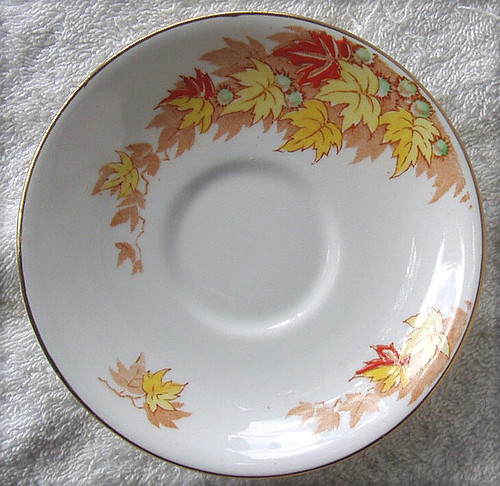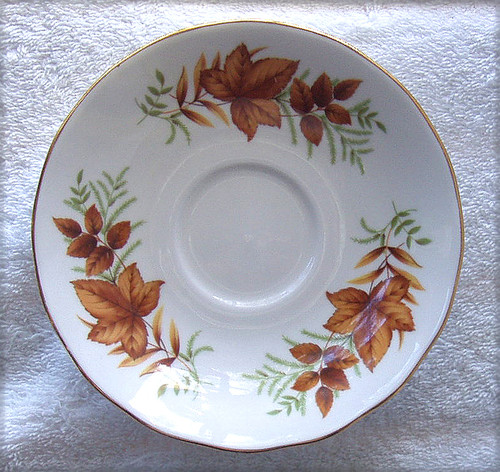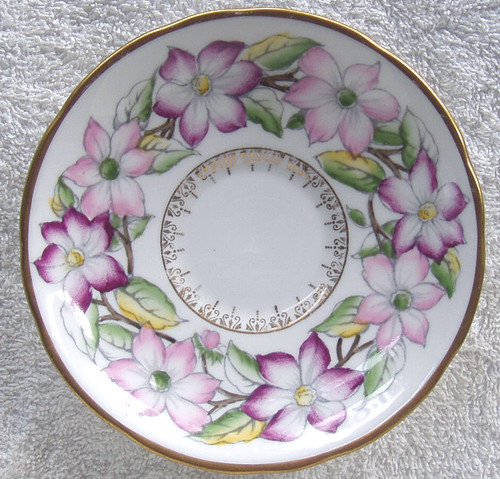This is an example of Royal Stafford China, not to be confused with the contemporary pottery named Royal Stafford, which was created in 1992 by the merger of Royal Stafford China with Barratts Of Staffordshire
Royal Stafford China was a trade name used by Thomas Poole & Gladstone Potteries
The backstamp absolutely confirms this teacup left the works in the early 1950's
DLAT Rating: 9/10 (Darling, look at this!)
ROYAL STAFFORD - Teacup ONLY
Circa early 1950's
Fine Bone China
Highly translucent chinaware (you can see the shadow of your fingers easily when the teacup is held to a light)
Teacup ONLY
Pattern: Official pattern name is unknown but we have always referred to this design as Autumn Sycamore Leaves
The design has been hand painted, it is easy to see and confirm this by rubbing a finger over the deep orange graphic in particular, noticeably thicker than the surrounding graphics and of course the edges of the leaves are not perfect, unlike transfer-ware. The backstamp artist marks also confirm this was hand-painted all those years ago.
Two areas of the pattern on the teacup, one being much larger than the other.
Symmetrical top lip (not scalloped) but the gilder has added flair to the teacup with quite detailed (not just lines) Gold gilding on handle.
Gold gilding applied to the top rim, base and on the back and inside the teacup handle (short lines and "dabs" along the back of the handle)
Bright White porcelain base
The backstamp indicates this left the works early 1950's
BACKSTAMP DETAILS: (Middle Brown stamped print)
ROYAL STAFFORD (On a downwards curved arch)
(Central bordered Crown graphic in the centre)
MADE IN ENGLAND (On an upwards curved arch)
BONE CHINA
On the "outside" of the backstamp, above is the artist and gilder's marks
CONDITION:
Clean
NO crazing - even using a "wet test" no crazing shows
NO cracks
NO fleabites
NO chips
NO wear to the hand crafted artwork
Gold gilding is in very good condition, no wear is apparent on the three areas, even the handle gilding is in great condition, this is an area which often suffers from high teacup use.
A very attractive teacup, particularly when matched with the saucer and side plate HERE, a departure from the stock standard "English flowers" themes
















